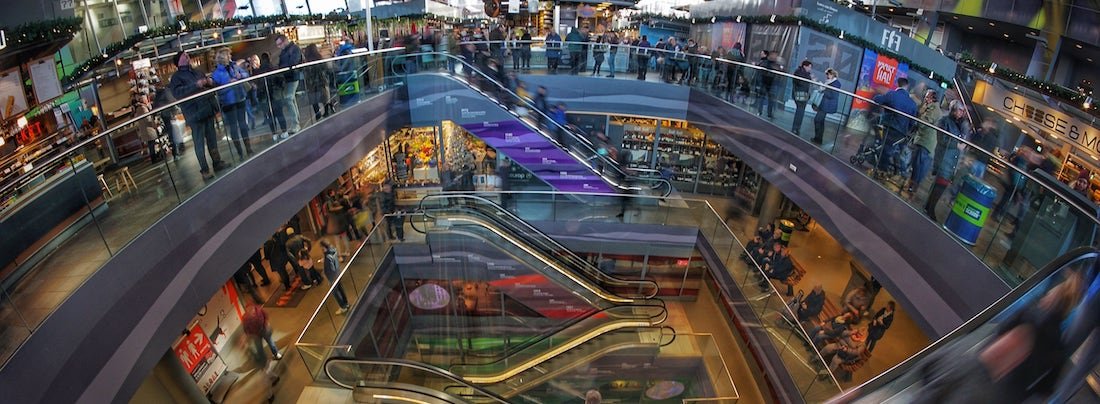Date published: 29.01.2020
Why seasonal sales have lost their appeal
Ten years ago, it was not uncommon to take a day off to visit stores on the first day of sales and find the best deals! However, at the beginning of this new decade, there has been significant footfall decline with fewer shoppers on the High Street. While many consumers now buy online, especially via their mobile phone, seasonal sales have also become less attractive. Discounts are now being offered throughout the year and consumers are used to finding good deals and bargains at all times.
Price cuts start earlier and last longer
More and more brands are now offering promotions ahead of seasonal sales. Richard Hyman, retail expert, told the Financial Times: “The economics of retail are changing before our very eyes. Digital sales have added additional capacity but haven’t added demand. Most of the sales we’re seeing aren’t planned and aren’t strategic — they are tactical responses to competition that only the really strong players with strong brands and price relationships with their customers can avoid.”
Christmas discounts and sales start as early as October. The peak is of course Black Friday, which has become a big thing. 2019 Black Friday sales were outstanding: sales increased 16.5% compared to 2018.
“This positive result may well seal the deal for retailers in terms of their commitment to Black Friday moving forward, as they will have claimed shoppers early on in the Christmas trading period giving them the opportunity to steal a march on their rivals” said Diane Wehrle.

Consumers now chase bargains all year round
Seasonal sales are also less attractive because consumers have become used to finding bargains all year round, using price comparison, cashback and couponing apps such as Groupon and Shopmium.
According to a poll from The Independent, 96% of shoppers look for bargains every day. More than a quarter of those polled felt they have more disposable income now than 10 years ago, with 28% attributing this to there now being more ways to save money.
Behavioural psychologist Emma Kenny explained: “It appears that in modern consumer society, customers are demanding better deals when making the majority of their purchases. The positive emotional connection and reward that customers receive after discovering a discount reinforces subsequent shopping behaviour and is a powerful motivator in returning custom.”
She added: “Undoubtedly, the average consumer no longer feels constrained by the price tags they are presented with and they are happy to spend time online and in the physical world searching for discounts and vouchers meaning their money goes further. The savvy shopper is fast becoming the largest consumer demographic.”
IRI had warned a few years ago: “Consumers have been inadvertently trained to look for deals in-store and to concentrate their purchasing into promotional periods. This behaviour is having no signs of slowing down. In essence, this means that the impact of promotions is also declining with each new promotion becoming less effective at achieving the desired uplift than the last.”
Some retailers are trying to restore price and value
Some retailers have expressed concerns that long-term discounting is distorting price and value.
Reflecting on M&S’s 2019 Christmas performance, Chief Executive Steve Rowe told Drapers: “[Across the market], the levels of discounting were substantially higher, and the amount of product on sale was substantially larger, in both stores and online before Black Friday and it carried on until Christmas. That level of discounting had an impact on the market. We held our nerve and didn’t start our Sale early. The level of stock that went into sale was 12% down on last year, and we came out of the season tidy in terms of stock. I’m a believer of first price, right price. If you have long-term discounting, shoppers don’t trust your value. We can give our shoppers the odd deal, but the wholesale blanket discounting we saw in December across the High Street is not something I want to play into.”
Just like M&S, Morrisons’ did not take part in Black Friday. Chief Executive Officer Dave Potts has admitted that not running promotions hit the retailer as it did not benefit from the “halo effect” it brings. He told Retail Week: “We’re seeing people more attracted to discounting in some areas”.
Richard Lim, Chief Executive of Retail Economics, shared with the Financial Times: “Retailers do not want to be discounting in the run-up to Christmas, a time when they should be selling at full price. But the genie is out of the bottle. In electricals, toys and footwear in particular, they need to defend their market share against Amazon.”

Environmental concerns are growing
Sustainability concerns are also leading some consumers to cut back on their purchases. A Barclaycard survey conducted at the end of 2019 reveals that sales spending is increasingly influenced by environmental concerns:
- Six in ten consumers (62%) said they intended to make fewer purchases in the post-Christmas sales
- Seven in ten consumers (67%) said they planned to spend less on ‘fast fashion’ because of the potential environmental impact of production.
Rob Cameron, CEO of Barclaycard Payments said: “Our research shows that shoppers are increasingly thinking about how their purchases impact the environment. Forward-thinking retailers should be making a conscious effort to demonstrate their commitment to sustainability, in order to boost their appeal – and their revenue.”
In Sweden, after “flygskam” (the shame of flying), a new phenomenon called “köpskam” (the shame of buying) has emerged. The CEO of the Swedish consultancy HUI Research told the HuffPost he believes it is “probably only a matter of time before köpskam becomes a widespread concept“.
As a conclusion, consumers no longer eagerly await seasonal sales. This is partly due to promotional periods lasting longer with new events such as Black Friday overtaking traditional sales. In addition, consumers have become savvy and seek out the best deals throughout the year using mobile apps. Many consumers are also more environmentally conscious, buying less and choosing more sustainable options.